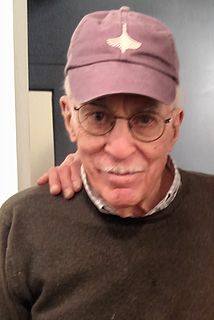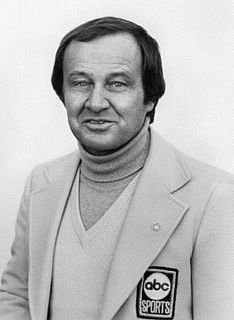A Quote by Dana Spiotta
Even if we try to see people in our lives accurately, it is distorted by our own wants and prejudices and experiences.
Quote Topics
Related Quotes
There are moments in our lives, there are moments in a day, when we seem to see beyond the usual- become clairvoyant. We reach then into reality. Such are the moments of our greatest happiness. Such are the moments of our greatest wisdom. It is in the nature of all people to have these experiences; but in our time and under the conditions of our lives, it is only a rare few who are able to continue in the experience and find expression for it.
No individual can be in full control of his fate-our strengths come significantly from our history, our experiences largely from the vagaries of chance. But by seizing the opportunity to leverage and frame these experiences, we gain agency over them. And this heightened agency, in turn, places us in a stronger position to deal with future experiences, even as it may alter our own sense of strengths and possibilities.
It requires something more than personal experience to gain a philosophy or point of view from any specific event. It is the quality of our response to the event and our capacity to enter into the lives of others that help us to make their lives and experiences our own. In my own case my convictions have derived and developed from events in the lives of others as well as from my own experience. What I have seen meted out to others by authority and repression, economic and political, transcends anything I myself may have endured.
As a scientist, objectivity is one of my most deeply held values. If we could just try harder, I once thought, surely we could each see the world as others see it and learn to respect one another's views more readily. But I learned from the Pirahas, our expectations, our culture, and our experiences can render even perceptions of the environment nearly incommensurable cross-culturally.
Everything that we see in our daily lives is more or less distorted by acquired habits and this is perhaps more evident in an age like ours when cinema posters and magazines present us every day with a flood of ready-made images which are to the eye what prejudices are to the mind. The effort to see things without distortion demands a kind of courage; and this courage is essential to the artist, who has to look at everything as though he were seeing it for the first time.
Our attitude determines how we evaluate our life's experiences. They determine how we evaluate ourselves. They also govern how we look at other people. Are we inclined to judge an eternal soul by the appearance of an earthly body? Do we see the beautiful soul of a brother or sister or do we only see that person's earthly tabernacle? Bodies can be distorted by handicap, twisted by injury or worn by age. But if we can learn to see the inner man and woman, we will be seeing as God sees and loving as He loves.


































